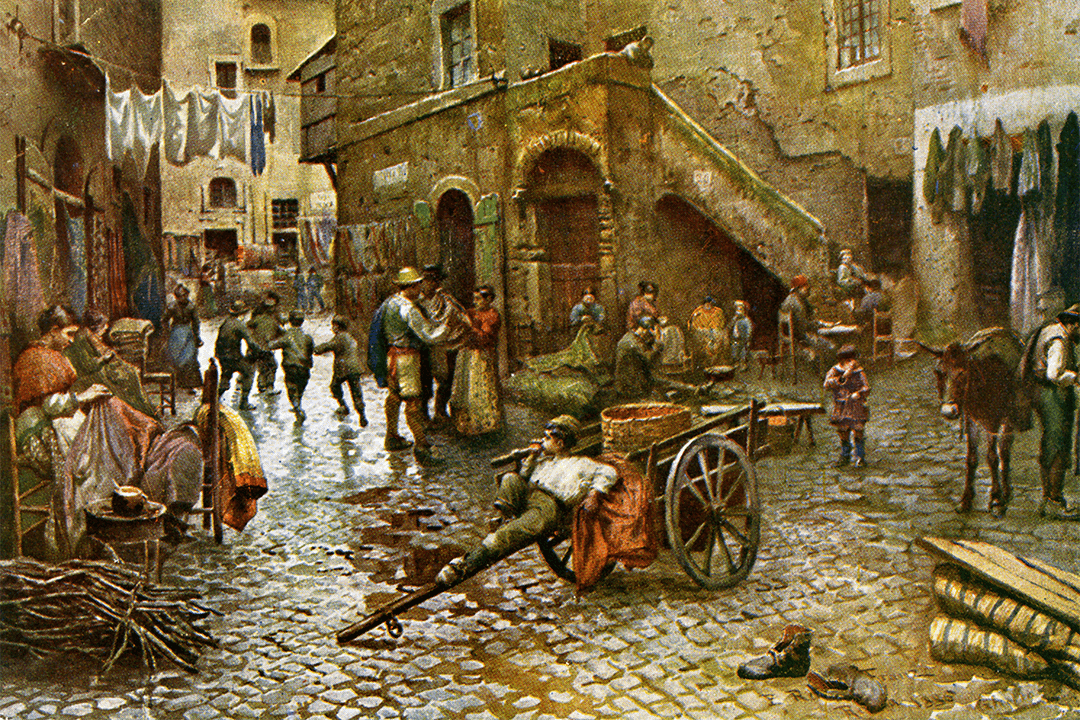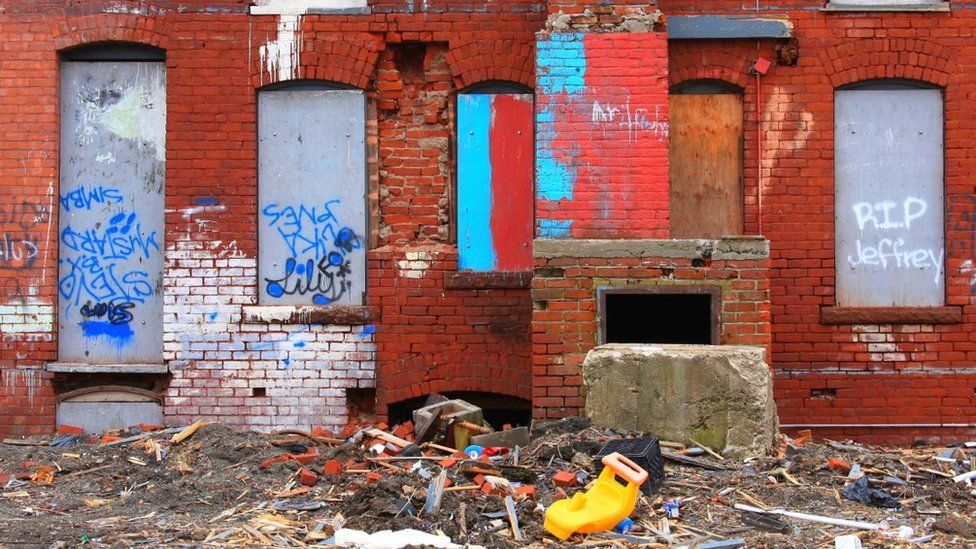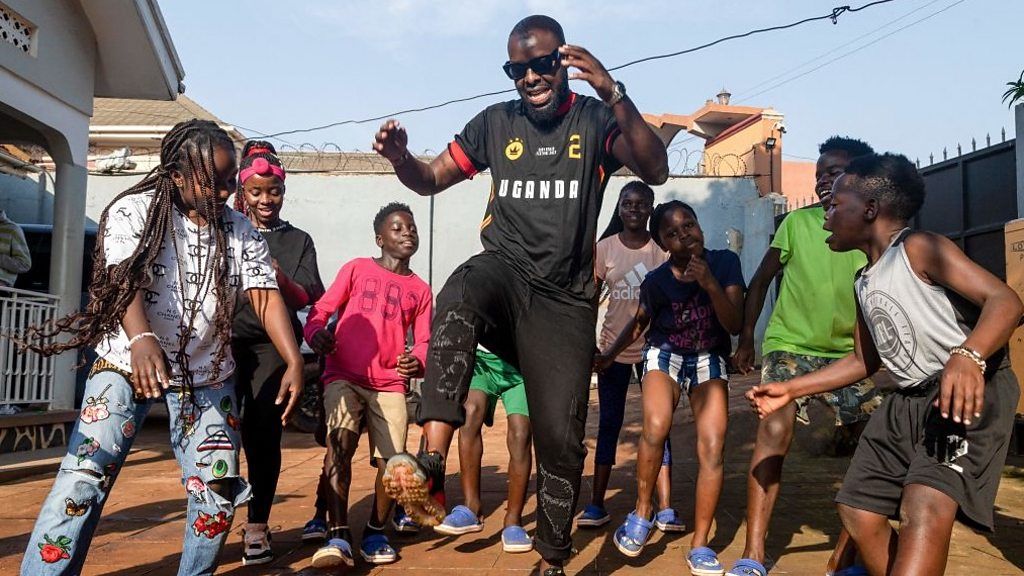Ghetto Tupe - Exploring Urban Culture And Online Voices
The word "ghetto" carries a very long and, some might say, heavy story, evolving quite a bit over time. It once described a specific part of a city where a group of people, particularly Jewish communities, were made to live, often because of official rules or just the way society was set up. Now, it's a term that gets used for many different urban spots, usually where people from a certain background, or those with fewer financial means, live gathered together, often apart from everyone else. This shift in meaning, from a formal, official designation to a more general description of a neighborhood, is pretty striking, too it's almost a complete change in how we think about it.
You know, for a while, the word "ghetto" became linked with certain city areas in America, often bringing to mind places with a lot of challenges, like difficulties with safety, or groups of young people causing trouble, and very little money. These places, more often than not, had a good number of people from minority groups living there. It's a term that, in some respects, really does stir up a lot of thoughts and feelings, making it a bit hard to pin down a single, simple way to describe it, that is the truth of it.
But the story doesn't just stop with city neighborhoods; it actually extends into the digital world, shaping how people share their experiences and artistic creations online. We see this with what some call "ghetto tupe" accounts, which are, you know, these raw, often very real and compelling video clips that have truly captured the attention of internet users and even helped new content creators get their start. This connection between the historical meaning of a place and the lively, sometimes gritty, content found online shows just how far the meaning of this word has stretched, making it a topic worth looking into, very much so.
Table of Contents
- What Does "Ghetto" Actually Mean?
- The Changing Face of Urban Living and "ghetto tupe"
- How Did Music Reflect These Stories?
- Akon's "Ghetto" and the Sound of "ghetto tupe"
- What About Online Video Platforms?
- The Rise of "ghetto tupe" Accounts and Black Tube
- Why Are These Voices So Important?
- Storytelling Through "ghetto tupe" and Beyond
What Does "Ghetto" Actually Mean?
The history of the word "ghetto" takes us back to the early 1500s, where it first described a particular street or a quarter within a city that was set aside, sometimes by law, as a place for Jewish people to live. This was, in a way, a very specific kind of residential area, often with clear boundaries and rules about who could live there. It wasn't just a general term for any poor area; it had a very defined, historical connection to certain communities and official requirements. This initial usage is, you know, pretty far from how many people use the word today, that's for sure.
Over time, the meaning of "ghetto" started to stretch, becoming more general. More recently, it began to be used for any urban area that was seen as being set apart, or where one group of people lived almost exclusively. This broadened meaning means it doesn't always carry the same historical weight it once did. In America, the term "ghetto" typically brings to mind a city neighborhood that faces big challenges, like a lot of bad things happening, or groups of young people fighting, and extreme lack of money. These areas usually have a significant number of people from minority groups living in them, which, in some respects, is a very sad picture of urban life.
The Changing Face of Urban Living and "ghetto tupe"
The way we talk about "ghetto" has really changed, from its origins in Europe to its more recent use in America, and now, it's even used to describe certain kinds of online content, sometimes referred to as "ghetto tupe." This shows how a word can grow and take on new meanings as society changes. It’s no longer just about a physical place; it’s about a feeling, a style, or a particular kind of expression that comes from these urban experiences. For instance, you might hear the word used to describe any kind of content that feels raw, unfiltered, or very real, often reflecting life in a way that isn't polished or fancy, which is, you know, a different sort of connection to its origins.
- Nodus Watches
- Tangram Regal
- The Strand House Manhattan Beach
- Q39 Midtown
- Culvers Flavor Of The Day Near Me
The very idea of what a "ghetto" means is, frankly, a bit hard to define simply, because it carries so much history and so many different ideas. It can refer to a part of a city where many people who don't have much money, or people of a certain background, live separately from others. Think about the black areas of New York and Los Angeles; these are often the places people have in mind when they use the word. Today, it's quite common for the word "ghetto" to be used for describing almost any area that fits this general description, or even, as we see, certain kinds of online content, which is a bit of a stretch from its initial meaning, but that's how language works, isn't it?
How Did Music Reflect These Stories?
Music has a really powerful way of telling stories about places and experiences, and the idea of the "ghetto" is no different. Artists often use their songs to share what life is like in these areas, giving listeners a glimpse into the challenges and realities faced by people living there. These songs can be a kind of message, helping to bring attention to issues like poverty or social separation. It's a way for artists to connect with their listeners on a very personal level, sharing something that's close to their own experiences, which, you know, makes the music feel very authentic and real.
One very well-known song that speaks to these experiences is "In the Ghetto." This was a song with a strong message, very close to the heart of the artist who sang it, because he himself grew up without much money. He never forgot where he came from, and this song was a way for him to express that. Similarly, another song titled "Ghetto" by a different artist also captures these feelings, providing a musical interpretation of what it means to live in such a place. These musical creations, in some respects, serve as a kind of historical record, showing how these places have been perceived and experienced through the years, and how they continue to influence creative expression, which is pretty neat.
Akon's "Ghetto" and the Sound of "ghetto tupe"
Akon's song "Ghetto" is a really good example of how music can bring the experiences of certain urban areas to a wide audience. This song, which came out as part of his "Trouble" collection, just recently marked its twentieth year, which is quite a milestone for a piece of music. It’s part of a collection that Universal Music Group provided, showcasing his unique sound and perspective. This song, you know, helped define a certain sound and message for a generation, making it a very important piece of music that still resonates with people today, very much so.
The song "Ghetto" and its enduring popularity show how these stories, often from what might be considered the edges of society, can truly reach the center of popular culture. This is, in a way, similar to how "ghetto tupe" accounts have become so popular online. These videos, which are often raw and unedited, offer a genuine look at life, much like Akon's song does through its lyrics and melody. They capture a certain authenticity that many people find compelling, and this connection between music and visual content from these areas is, you know, a very interesting thing to see develop.
What About Online Video Platforms?
The internet has really opened up new ways for people to share their stories and express themselves, especially through video platforms. These online spaces allow individuals to create and upload content that reflects their daily lives, their culture, and their unique points of view. It’s a place where anyone with a camera and an internet connection can become a storyteller, reaching audiences all over the world. This is, you know, a fairly recent development that has changed how we consume media and how we understand different communities, very quickly.
One of the most well-known places for this kind of content is Worldstarhiphop. This platform is, basically, a central spot for all things entertainment and hip hop, and it's recognized as a leading urban news source. It’s often the first place where the newest urban stories and, for example, videos of "hood fights" are shared. This kind of platform provides a very direct, unfiltered look at certain aspects of urban life, which, for some, is a really important way to stay connected to what's happening in these communities, and to see things as they really are, or at least as they are presented there.
The Rise of "ghetto tupe" Accounts and Black Tube
The rise of "ghetto tupe" accounts online is a pretty interesting phenomenon. These accounts feature content that is often described as rough and very real, capturing a side of life that might not always be shown in mainstream media. They have, in a way, really captivated internet culture and helped new creators get their start, giving them a platform to share their unique perspectives. It's about authentic voices finding a way to be heard, even if the content isn't always polished, which, you know, is part of its appeal for many viewers.
Alongside these general "ghetto tupe" accounts, there are also platforms specifically created to celebrate black American and Afrocentric culture. The "black tube," for instance, is an American-built video sharing and on-demand platform that focuses entirely on this. It provides a dedicated space for black storytelling, offering movies and TV shows online in high quality, available on pretty much any device. This kind of platform is really important because it ensures that specific cultural narratives and experiences are shared and preserved, giving a voice to a community that has often been overlooked in traditional media, which is, you know, a very good thing to see happening.
Why Are These Voices So Important?
The voices coming from these urban areas, whether through music or online videos, are incredibly important because they offer a different way of seeing the world. They challenge common ideas and give us a look into lives that might be very different from our own. When artists like Elvis Presley sing a message song like "In the Ghetto," it’s not just entertainment; it’s a way of making people think about bigger issues, like growing up without much money. He never forgot where he came from, and his music, you know, really showed that connection, giving a voice to those experiences.
Similarly, the work of filmmakers who document the difficult parts of life, like truck stop prostitution, as Alexander Perlman did, shows that these stories are often much more involved than they might seem at first glance. These kinds of stories, whether in music or film, help us to understand the actual experiences of people living in these circumstances. They are, in some respects, a way to build a bridge of understanding between different groups of people, helping us to see the shared humanity in all experiences, which is, you know, a truly valuable thing.
Storytelling Through "ghetto tupe" and Beyond
The whole idea of "ghetto tupe" accounts and platforms like Tubi, which offers free black storytelling movies and TV, really highlights the importance of diverse narratives. These platforms give a stage to stories that might not otherwise be told, allowing creators from these communities to share their own experiences in their own words. This direct connection to the source of the stories is, you know, very powerful, and it helps to paint a more complete picture of life in various urban settings. It’s about giving people the chance to tell their side of things, without filters or outside interpretations, which is pretty cool.
Whether it's a tribute to a musical genius that gets millions of views, or a local music streaming platform like Ghetto Tunes in Malawi that helps artists share their music, the spirit of "ghetto tupe" is about raw, authentic expression. It's about communities finding ways to connect, share, and celebrate their culture, often through channels that they create themselves. This desire to share and discover new artists, songs, and stories is, you know, a very human thing, and these platforms, in a way, are just the newest form of that age-old need to tell our tales and hear others' too.
This exploration of "ghetto tupe" has covered the evolving definition of the word "ghetto," from its historical roots to its modern application in urban areas and online content. We looked at how music, through artists like Akon and Elvis Presley, has captured these experiences, and how online video platforms, including "black tube" and Worldstarhiphop, provide spaces for authentic storytelling. The discussion also touched on the significance of these voices in helping us understand different perspectives and cultures.
- Schnebly Redlands
- Great Wolf Lodge Williamsburg Va
- Frank And Son Collectible Show
- New Mexico Fish And Game
- Prime Corporate Services

Ghetto: Chronicling a Word’s Tortured History | Columbian College of

Is the word 'ghetto' racist? - BBC News

Ghetto Kids: Winning Britain's Got Talent would mean a bigger house in